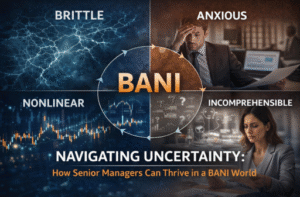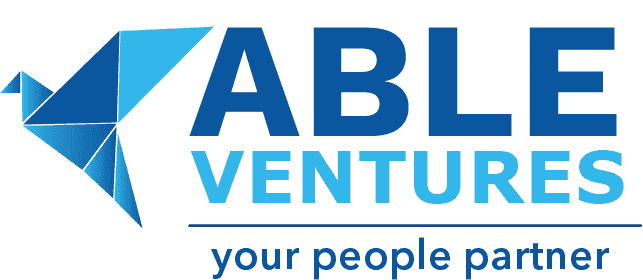Table of Contents
Employee Engagement Activities That Actually Work: Building a Strategy That Lasts
- September 26, 2025
- Able Ventures
- 8:20 am
Introduction: Why Engagement Is More Than Perks
I’ll never forget a conversation with a CEO during one of my consulting projects. He said, “We give free lunches, Diwali bonuses, and even a yoga app subscription. Yet, our top talent still leaves within 18 months. What are we missing?”
That’s the real challenge. Employee engagement activities aren’t about keeping people entertained. They’re about building a culture where employees feel valued, grow with purpose, and connect their work to business outcomes.
Without that, you can spend crores on programs — and still lose your best people. From
Activities to Strategy: The Shift Leaders Must Make
I’ve seen companies pour energy into one-off events — pizza Fridays, annual off-sites, motivational talks. They create a spike in morale. But ask yourself: Do they move the needle on retention, performance, or culture?
The answer, usually, is no.
That’s why the best organizations move from activities to strategy. A well-designed employee engagement plan links every activity to business goals, employee needs, and measurable outcomes.
Engagement is not about “doing more.” It’s about doing the right things consistently.
Creative Ideas That Spark Ownership
Here’s something I’ve learned: repetition kills enthusiasm. When employees can predict the next “fun activity,” they disengage.
Instead, organizations that thrive use creative employee engagement ideas:
- Gamified learning sprints where teams compete to solve real business problems. ● Innovation hours where employees choose projects and present to leadership. ● Community initiatives employees lead themselves, not HR.
These aren’t “feel-good extras.” They create ownership and pride. And when ownership builds, engagement becomes authentic .
Choosing the Right Models for Your Organization
Every company asks me, “Which is the best employee engagement model?” The truth: there isn’t one.
A startup in Bangalore needs agility and purpose. A large bank in Mumbai may need structure and recognition. The key is not to copy a global model blindly, but to adapt engagement models to your culture and workforce demographics .
The best HR consultancies in India know this: models should guide, not restrict.
How to Improve Employee Engagement in Practice
So, what really works?
- Regular feedback loops → Employees don’t just want to be heard once a year. ● Transparent communication → Reduces grapevine anxiety and builds trust. ● Linking engagement to career growth → The most engaged employees are those who see a future for themselves in the company.
This is how you actually improve employee engagement — not with more events, but with consistent, meaningful actions.
The CEO Test: Engagement as a Business Priority
One of my favorite moments was during a leadership review when a CEO asked his team, “Are our employees working for salaries or for purpose?”
That’s the ultimate litmus test. If your employee engagement programs only spark temporary excitement, you’ve missed the point. If they create clarity, growth, and belonging — you’ve built a workforce that stays and thrives.
The choice is yours: Will your engagement activities create a momentary spark, or a lasting culture?
Frequently Asked Questions
Employee engagement activities are initiatives designed to foster a positive workplace culture, boost morale, and strengthen employees’ emotional connection to their work and organization. These activities go beyond perks and aim to create an environment where employees feel valued, motivated, and aligned with company goals.
Employee engagement activities are critical for retention because they directly impact employees’ sense of belonging, growth, and connection to their work. When employees feel engaged and see a clear link between their work and business outcomes, they are more likely to stay with the company for the long term.
While perks like free lunches or annual off-sites can create short-term excitement, they often do not address long-term engagement. True employee engagement activities focus on building a culture where employees feel valued, aligned with the company’s vision, and have opportunities for growth and development.
Effective employee engagement activities are strategically designed to align with business objectives. For example, gamified learning sprints and innovation hours can address real business challenges, driving both employee growth and company performance. Linking engagement activities to measurable outcomes ensures their long-term effectiveness.
Gamified learning sprints: Teams compete to solve real business problems.
Innovation hours: Employees choose projects and present to leadership.
Community initiatives: Employees lead initiatives, fostering a sense of ownership.
These activities help employees feel responsible and connected, leading to authentic engagement.
The best model for employee engagement depends on your organization’s size, culture, and goals. While global models can provide a framework, it’s essential to adapt engagement strategies to your specific workforce needs. A startup may need flexibility, while a large corporation may require more structured programs.
Regular feedback loops ensure that employees feel heard and valued. Unlike annual surveys, continuous feedback fosters trust, promotes transparency, and helps employees understand how they contribute to the organization’s success, thereby increasing engagement.
Recent Blogs

Navigating Uncertainty: How Senior Managers Can Thrive in a BANI World
The frameworks that once guided organizational strategy no longer apply. The BANI world, characterized by conditions that

Developing Leadership in Current Leaders with H3 Leadership
Leadership is not a soft capability. It is a decisive business variable. Organizations with strong leadership pipelines

Mastering Communication: Empowering Professionals Across All Career Stages
Professional communication skills are no longer a “soft skill.” They are a core business capability.
In
